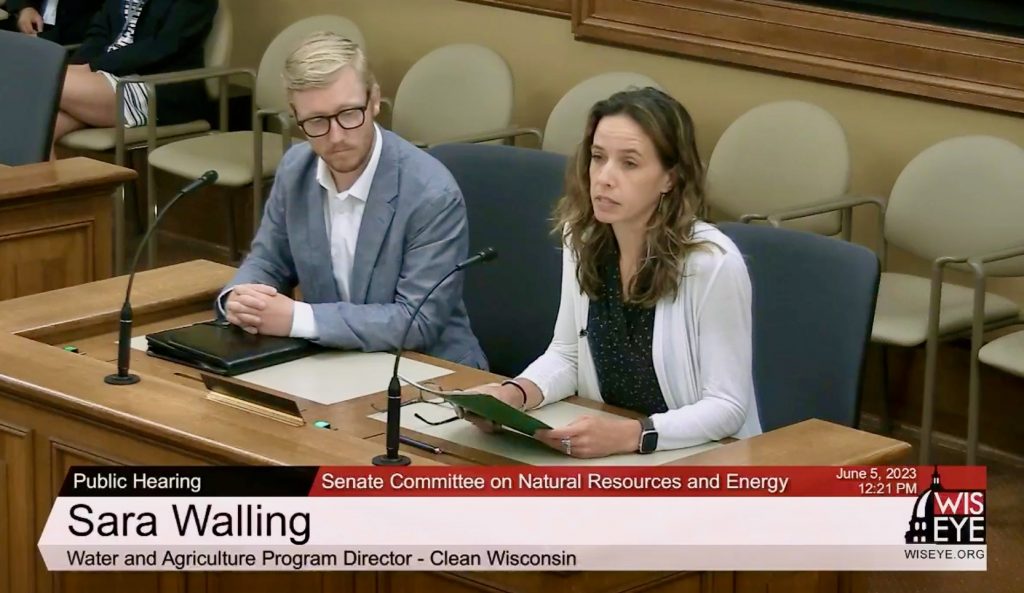Bill provides funding to help Wisconsin communities address “forever chemicals” but could constrain state’s ability to hold polluters accountable.
Today Clean Wisconsin Water & Agriculture Program Director Sara Walling spoke to members of the Wisconsin Senate Committee on Natural Resources and Energy about Senate Bill 312, which focuses on PFAS contamination. During her testimony, Walling stressed that the bill along with the $125 million recently allocated for PFAS clean-up in the state budget process represent a significant step toward addressing this statewide issue.
“While the actual cost to clean up PFAS pollution, provide safe drinking water and prevent future contamination is difficult to calculate, $125 million is a significant investment that should provide extensive assistance to many affected communities,” said Walling, adding that municipal grant programs created in Senate Bill 312 are also critical.
“PFAS testing is expensive, and new state grants for municipalities to conduct that testing is essential for fully identifying and remediating Wisconsin’s PFAS problem. We also know that once PFAS is found in a water source, it is costly for utilities to invest in new infrastructure that can provide safe drinking water. Grant programs, like those created in Senate Bill 312, should help ease the burden on local utilities and their ratepayers, who are forced to invest in system upgrades due to the regrettable actions of other responsible parties.”
But Walling stopped short of supporting the bill, pointing to concerns over language in the bill limiting the Department of Natural Resources’ ability to hold polluters accountable.
“…we believe the language risks needlessly weakening Wisconsin’s Spills Law. We won’t make progress on this issue if, for every one step forward in the use of these proposed new grants, communities will move two steps back in adequately identifying contaminated properties, remediating those properties, and, if necessary, holding polluters accountable. We urge the bill authors to consider amendments that ensure PFAS and related compounds are treated the same as other relevant contaminants under the Spills Law. Limiting the department’s statutory authority in the ways suggested by this bill will not help Wisconsin address this problem,” she told the committee.
After today’s hearing, Walling was optimistic that amendments would be made to safeguard the DNR’s ability to respond to PFAS contamination sites.
“Clean Wisconsin has been working with DNR staff and the bill’s authors. There is a willingness to address this and avoid unintended consequences that could actually move Wisconsin backwards when it comes to addressing the PFAS crisis,” she said. “It’s critical that the DNR be able to respond quickly and meaningfully to contamination incidents. So we’ll keep working to make sure the DNR’s authority to do that is protected.”

